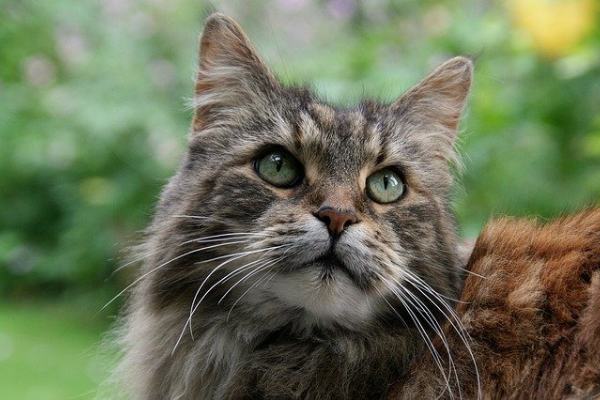Why Do Outdoor Cats Live Shorter [Answered]
![Why Do Outdoor Cats Live Shorter [Answered] Why do outdoor cats live shorter](https://petcreeks.com/wp-content/uploads/2021/02/photo-1558963505-da57e6678065_resize_91.jpg)
Why do outdoor cats live shorter? Let’s discuss this question…
In this post, we’ll explore the reasons behind this troubling statistic and ways you can keep your furry friend safe and healthy.
Why do outdoor cats live shorter?
Outdoor cats live shorter because they do not get routine medical care, need shelter, are hunted down by many predators, and have no access to a complete diet and clean water.
These are just the few reasons why outdoor cats live shorter, let’s dive deeper…
Reasons outdoor cats live shorter
In my opinion as a long-time cat owner, here are the reasons outdoor cats live shorter than indoor cats:
1. Outdoor Cats Do Not Get Any Medical Check-ups
Cats are among the top pets that face a lot of health challenges from time to time, for a cat to live longer, such a cat must be close to vets.
Outdoor have no routine medical care or check-ups, which makes them live with whatever health issues they have, and this affects their overall longevity.
In my opinion, indoor cats always get enough routine medical care, which makes them live longer than outdoor cats who have no medical checkups.
An outdoor cat can pick up a disease while hunting and because it gets no medical care, it will end up sick and eventually die without getting into the expected life span.
Therefore, in my opinion, lack of routine medical care is a major reason outdoor cats live shorter than indoor cats.
2. Outdoor Cats Do Not Get Any Vaccination
Outdoor cats in the wild do not get vaccinated against any diseases associated with cats, this is because they have no access to a vet.
But all indoor cats get vaccinated even from the kitten stages making them build a strong immune system.
Because the immune system of outdoor cats is so low since we do not vaccinate them they easily get infections, making them live shorter.
3. Outdoor Cats Have No Access To Good Food
Outdoor cats know nothing about a complete diet and getting clean water, which is the basis of good health and longevity among cats.
Cats need a complete diet and that is exactly why most cat food-producing companies do, indoor cats eat a good meal and this extends how long they live.
Outdoor cats feed on any and everything just to stay alive, and this significantly affects their growth rate overall well-being, and longevity.
But outdoor cats don’t even see full meals every day.
Most indoor cats get good meals on a daily basis and are always happy and have good playtime with wonderful exercises.
While some days most outdoor cats go hungry because they cannot find food, or they don’t succeed in a hunt.
Going on an empty stomach does no good to the overall well-being and longevity of the cat.
A complete diet contributes to the longevity of cats.
4. Outdoor Cats Get No Access To Clean Water
Clean water is very important in a cat’s lifespan as it helps keep the cat always hydrated, even during the summer.
Dehydration is a tremendous problem for cats, and constant dehydration can affect the cat’s internal organs.
Day after day outdoor cats hardly find water to drink in the wild talk of clean water, even when they find where to drink from predators are everywhere.
The longer outdoor cats go without go without drinking water the shorter their lifespan becomes.
5. Outdoor Cats Have Too Many Predators Hunting Them
Too many predators in the wild are just one reason an outdoor cat can live past 1 year or even weeks in the wild.
Depending on the location, every forest or small bush around town hosts many predators waiting for your cat to slip up.
Most outdoor cats get killed by moving vehicles, and some by wild animals. All this contributes to why outdoor cats live shorter.
Outdoor Cats predators Include:
Here is a list of a few animals that see cats as prey.
- Coyotes
- Eagles
- Owls
- Raccoons
- Wild and domestic dogs
- Otters
- Big snakes
- Wolves
- Cougars
- Scorpions
- Porcupines
- Skunks
- Groundhogs
As you can see from the list, there are too many predators or animals that can kill a cat out there, and therefore outdoor cats live shorter.
6. Outdoor Cats Are Prone To High Levels of Diseases
Outdoor cats live shorter because of the high level of diseases in their environment, which affect their overall health conditions.
Even the air in some environments in which an outdoor cat lives is contaminated, and this makes it hard for outdoor cats to have a proper life.
The environment plays an important role in the longevity of most animals, and cats are no exception to it.
If you provide a safe environment for an outdoor cat, then you have extended its longevity.
When these outdoor cats catch up with diseases from their environment, they get no medical attention which makes them ill and leads to early death.
7. Outdoor Cats Are Prone To More Pest And Parasite Attacks
Ticks, mites, lice, and fleas are the most deadly pest that attacks cats, they vaccinate even indoor cats against them.
Since outdoor cats don’t get vaccinated, they are constantly being attacked by this pest reducing their lifespan.
Tapeworms, hookworms, and roundworms are the main parasites that attack cats, even indoor cats get vaccinated against them.
But outdoor cats catch up with lots of worms due to what they eat, making them live shorter than indoor cats.
8. Outdoor Cats Have No Proper Shelter
Outdoor cats get exposed to all sorts of harsh environmental conditions, which have a direct impact on their overall longevity.
Sometimes an outdoor cat sleeps in a contaminated environment because it has no better offer, and this affects the overall health of the cat and reduces the cat’s longevity.
These outdoor cats sometimes sleep in the rain because they have no proper shelter, as opposed to indoor cats, who can’t step out during rainy periods.
Most times when outdoor cat gets into trouble, they end up being caught because they have no proper shelter or places to hide away from bigger predators.
So without proper shelter, it reduced the longevity of outdoor cats to that of indoor cats who even have cat trees and places to hide when they want to take a nap.
How long can an outdoor cat live?
On average, an outdoor cat can live for about 4 to 8 years, depending on the environment and number of predators around, and also depending on the breed.
A popular website says 2 – 5 years but from experience, I can tell you 4 to 8 years however, my jack lived 9 years before a hunter who never knew my jack killed it.
Sometimes you see an outdoor cat live beyond 8 years old depending on the breed, some outdoor cat ends up turning into a powerful wild cat and creating their own territory.
Most outdoor cats are born outdoors and already have strong immunity, they also grow to become fantastic hunters. Sometimes they create their own family in the wild.
However, outdoor cats live shorter than indoor cats because they lack lots of things indoor cats get.
What do lost cats or outdoor cats eat
Outdoor cats eat any and everything that comes their way just to stay alive, so basically you can not say lost or outdoor cats have a specific food just like an indoor cat that has specifically made and enriched food both wet and dry.
However, out of the experience, we can list some food outdoor cats eat to stay alive in the wild which includes;
- Rats (Mice)
- Locust
- Green grass
- Small Birds
- Small snakes
- Low pound fishes
- Lizards
- Lost chicken
- Flogs
Just like we said, these outdoor cats eat any and everything that comes their way just to stay alive, and over time they become powerful hunters and go for better food.
All this type of food they eat contributes to why they basically live shorter than an indoor cat whose food is carefully selected and changed.
Learn more about cats surviving winter.
Ways to help outdoor cats live longer
Here are some common ways to help outdoor cats live longer:
- Provide shelter and a comfortable living area: Outdoor cats need a safe place to rest, especially during harsh weather conditions. You can provide them with an insulated shelter or a cozy spot in a garage or a barn.
- Regular feeding and hydration: Outdoor cats may not have access to regular food and fresh water, so providing them with a daily source of nutrition is important. Automatic feeders and water fountains can be helpful in keeping their food and water fresh.
- Regular veterinary check-ups: Make sure your outdoor cat is receiving regular vaccinations and check-ups by a veterinarian to prevent or catch illnesses early.
- Spaying or neutering: Spaying or neutering outdoor cats can help prevent overpopulation and reduce the risks of diseases.
- Protection from parasites: Fleas, ticks, and other parasites can cause serious harm to outdoor cats. Protect them from parasites and pests by providing flea collars, topical flea, and tick preventatives, or oral medication prescribed by a vet.
- Keep them away from traffic: Outdoor cats can face dangers from passing cars on the street. To keep them safe, try to limit their access to areas with heavy traffic.
- Provide toys and activities: Playing and staying active are important to outdoor cats’ mental and physical health. Provide them with toys, scratching posts, and activities to keep them entertained.
- Consider adopting: If you have the space and resources, consider adopting an outdoor cat and providing them with a safe, loving environment.
- Provide love and attention: Outdoor cats may not receive as much attention as indoor cats, so showing them some love and attention can go a long way in keeping them healthy and happy.
Learn more about feral cat lifespan.
Related questions
Why do outdoor cats live shorter than indoor cats?
Outdoor cats have a higher risk of getting into fights with other animals, getting hit by cars, or contracting diseases from other cats. These risks can significantly reduce their lifespan compared to indoor cats who are less exposed to such dangers.
Is it safe for my cat to go outside sometimes?
While it’s good to give your cat some time to explore the outdoors, it’s generally safer to keep them indoors. If you do want to let your cat out, consider getting them vaccinated against common diseases and fitted with a collar that has identification on it in case they get lost.
Why do some cats prefer to stay outside?
Some cats are naturally more adventurous and prefer the outdoors. However, it’s important to weigh the benefits of allowing your cat outside against the risks.
How can I protect my outdoor cat from diseases?
The best way to protect your outdoor cat from diseases is to get them vaccinated against common illnesses, such as feline leukemia and rabies. Make sure they receive regular check-ups and maintain a healthy diet to keep their immune system strong.
Should I keep all cats indoors?
It’s generally safer to keep cats indoors, but some cats may be more content and healthy with outdoor time. Ultimately, the decision comes down to your cat’s personality, your living situation, and the potential risks in your area.
Learn more about where feral cats sleep.
Conclusion
Keeping an outdoor cat comes with lots of troubles, mostly the peace of mind that you will never get if you keep an outdoor cat. Depending on your environment, outdoor cats can still live for longer periods. But the major reason they die quickly is diseases and predators.





![Why Do Male Cats Run Away [6 Reasons] Why Do Male Cats Run Away](https://petcreeks.com/wp-content/uploads/2021/07/Why-Do-Male-Cats-Run-Away-768x644.jpg)
![Do French Bulldogs Bite [10 Bite Triggers] Do French Bulldogs Bite](https://petcreeks.com/wp-content/uploads/2021/07/Do-French-Bulldogs-Bite-768x644.jpg)